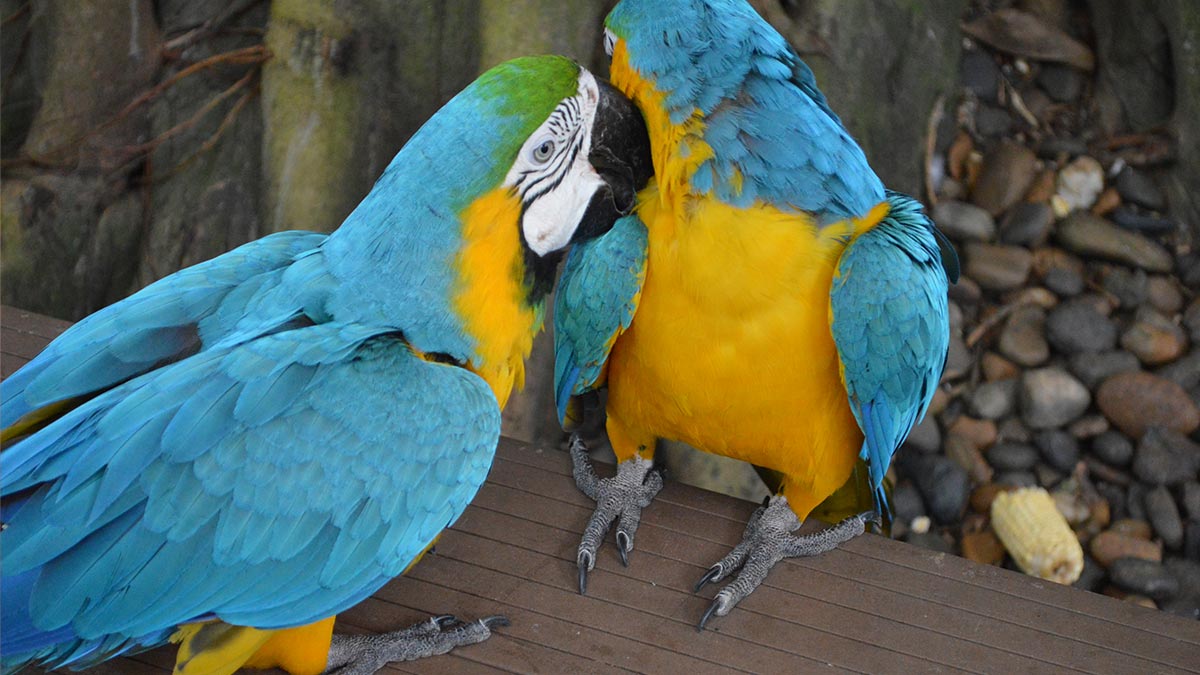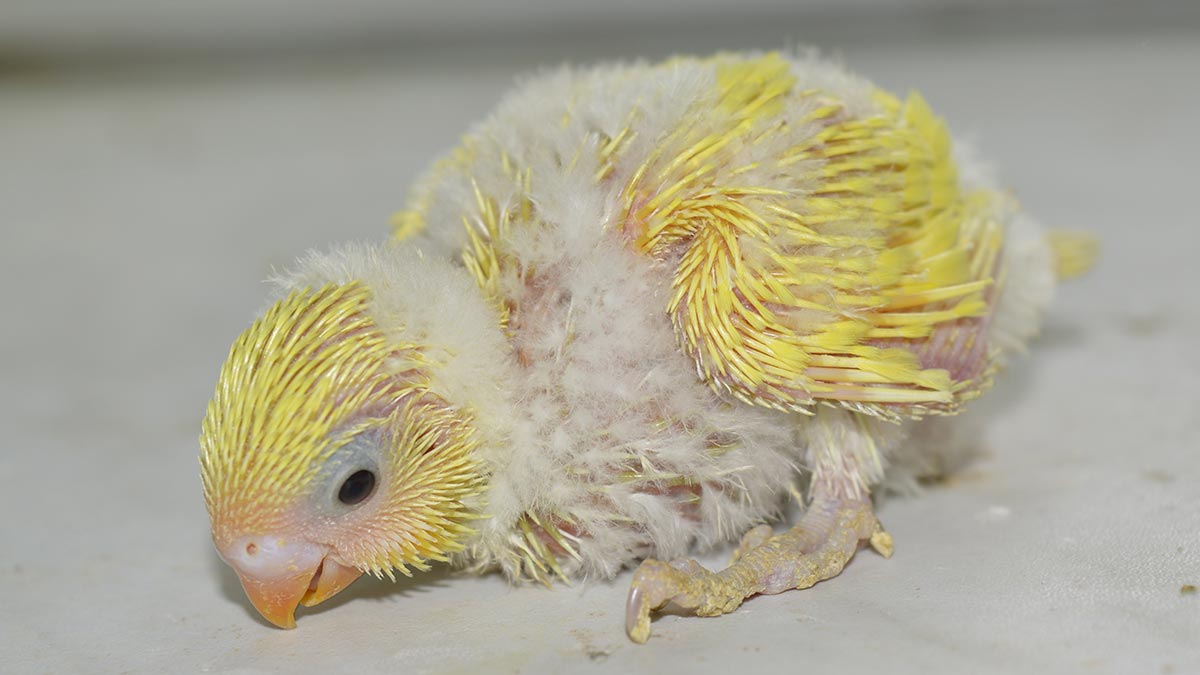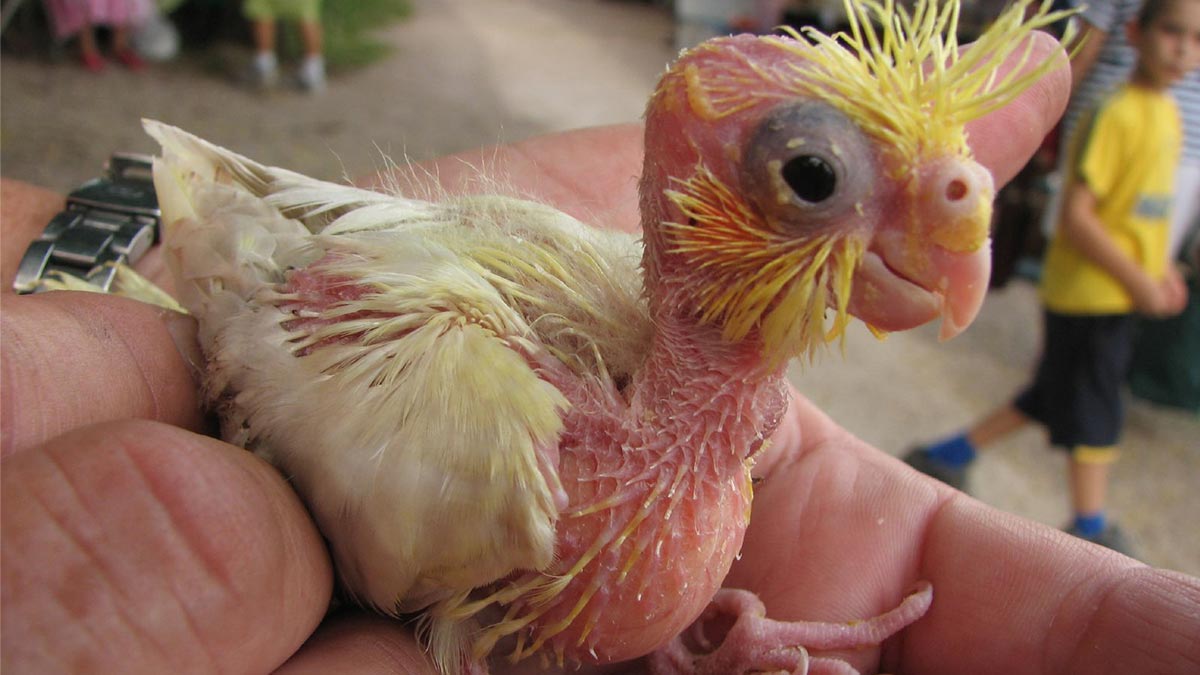
A parrot typically hatches out of its shell completely naked and blind!
Photo Gallery
A baby parrot begins its life inside an egg. A mother parrot lays her eggs in a hollow place on a tree and incubates the eggs until they hatch. A parrot typically hatches out of its shell completely naked and blind! From there, a baby parrot depends on its Mom to regurgitate food into its mouth or a human breeder to feed it parrot formula.
Imprinting
Baby parrots look for a Mom or Dad right away. Imprinting is a psychological terminology that describes the process by which a baby starts to recognize its parents. Birds normally accept the first moving thing or animal that they see as their parent. If a human being is the one feeding these birds, they will accept him as their parent. Unlike fully domestic animals, birds have a strong fear of humans at first. Because of this instinctual fear, breeders who are basically raising parrots for business imprint baby parrots to human beings and restrict them from their real parents. This practice helps make the baby parrots friendlier to other breeders after they are finally sold.
When a baby parrot has started flying or is almost ready to, they’re called a Fledgling. A fledging is weaned from their parents when they enter this stage of their life. This means they can fly and find their own food along with eating solid foods.
A baby parrot can usually fend for itself in the wild after it has been fledged and fully weaned onto an adult diet. This is of course the right age for it to be sold while in captivity. A young parrot is usually very accommodating of new people and new situations and can easily be re-homed.
There is a huge variation in colors between juvenile parrots and their adult counterparts. Color changing on juveniles comes as a result of molting whereby they shed old feathers by growing new ones. This molting process usually takes a few weeks for a young parrot to fully grow to adult colors.
Caring for Parrots
Parrots are very smart creatures! They’re captivating and can make extremely good pets if raised correctly. The basics of caring for parrots includes always keeping a clean cage. In addition to a clean cage, parrots should always have access to seeds or a food mix and fresh water. Parrots love to play and chew on toys and will enjoy any toys you put in their cage! Many parrots can even be trained to play or do tricks. Even come when called!
Feed your parrot a variation of seed mix, pellets and leafy greens. A well balanced diet means a happy parrot! Your parrot also likes to socialize and would prefer to be kept in an area that has lots of human activity going on. Try keeping your parrot in a common living area such as the family room. Never keep your parrot in the kitchen as food odors could make them uncomfortable.

